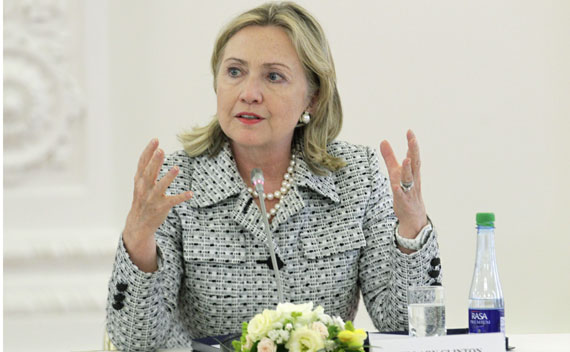Women in Foreign Policy
More on:

At a recent conference on U.S. foreign policy, I was struck by how few women were in the room. The discrepancy came sharply into focus when all of us in attendance posed for a group photograph—of thirty-nine participants, only six were women. Struck by the inequality, I looked into whether the data substantiated my anecdotal impression of women’s underrepresentation in U.S. foreign policy and national security-related fields.
The results of what emerged are presented in an essay I wrote for ForeignPolicy.com, “City of Men.” The evidence shows that women are proportionally underrepresented within the academy, military officer corps, civilian foreign policy positions, and at foreign policy-related think tanks. Although the 2010 Census found that women make up 51% of the U.S. population, they hold less than a third of senior positions at most foreign policy-related institutions.
While there are assuredly other groups and voices underrepresented in the DC-centric foreign policy and national security world, the lack of women at many stops in my career has always been particularly notable. Beyond what is in the ForeignPolicy.com piece, two additional thoughts.
First, several women working at think tanks or related institutions have been in touch to tell me of the inadequate maternity leave that they are offered. The Family and Medical Leave Act provides most federal employees “with up to 12 weeks of unpaid, job-protected leave per year,” including “for the birth and care of the newborn child.” Several think tanks provide much less.
Second, from my own personal experiences and hearing from colleagues abroad, the underrepresentation of women at non-U.S. think tanks is as bad or worse. I have been fortunate to give talks at think tanks and universities from Madrid, to Moscow, to Beijing, and it is most often to a table full of men, though women overwhelmingly do the administrative work that makes the event actually happen.
Without doing large surveys of women, and examining the policies and practices of relevant institutions, it is impossible to know exactly why so many women are missing from key foreign policy positions. I do not think that people are born to be State Department officials or foreign policy wonks. They are made through educational opportunities, socialization, interest, ambition, and for other reasons. I would appreciate hearing your thoughts on why women are underrepresented in the foreign policy world, and if and why it matters.
More on:
 Online Store
Online Store
